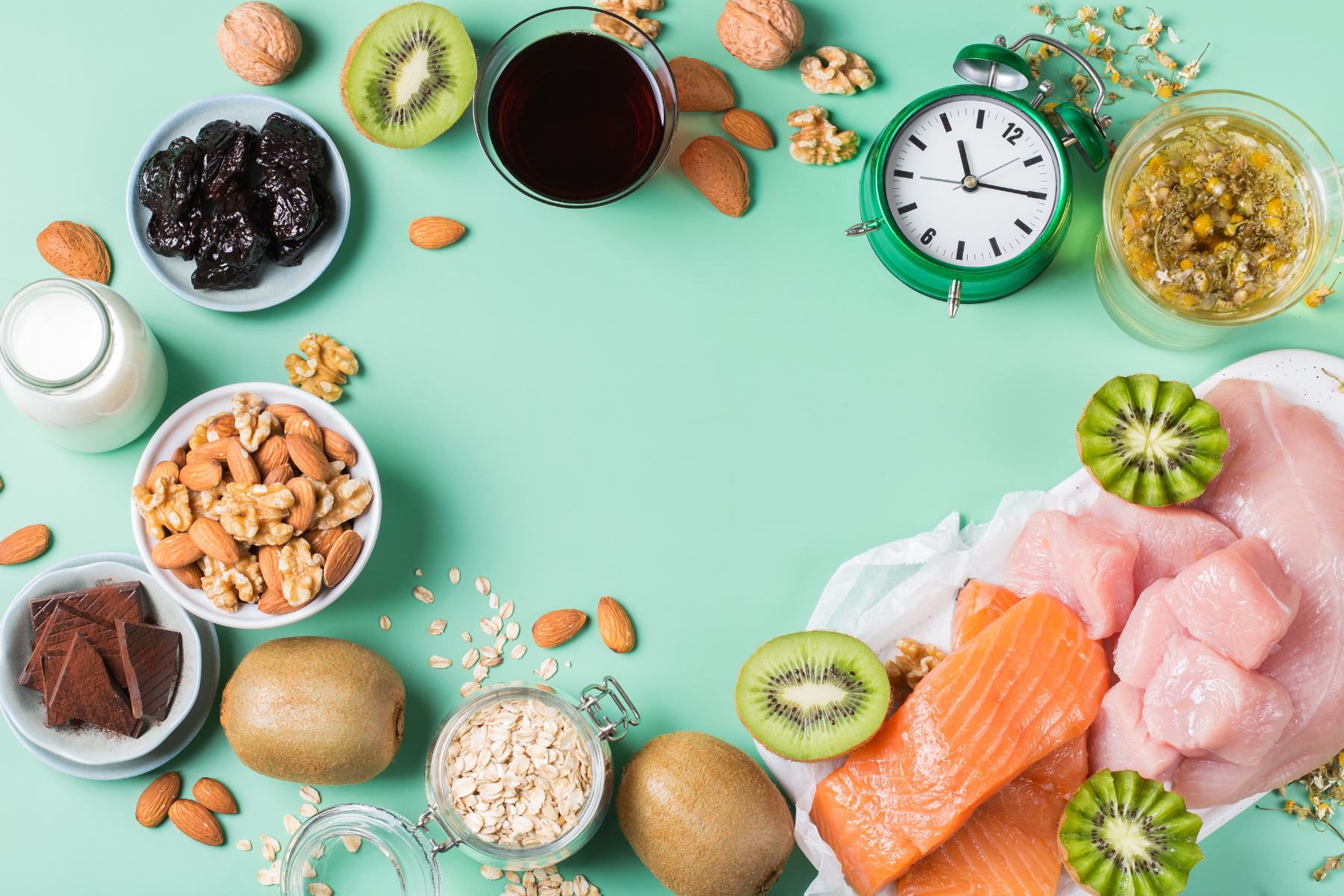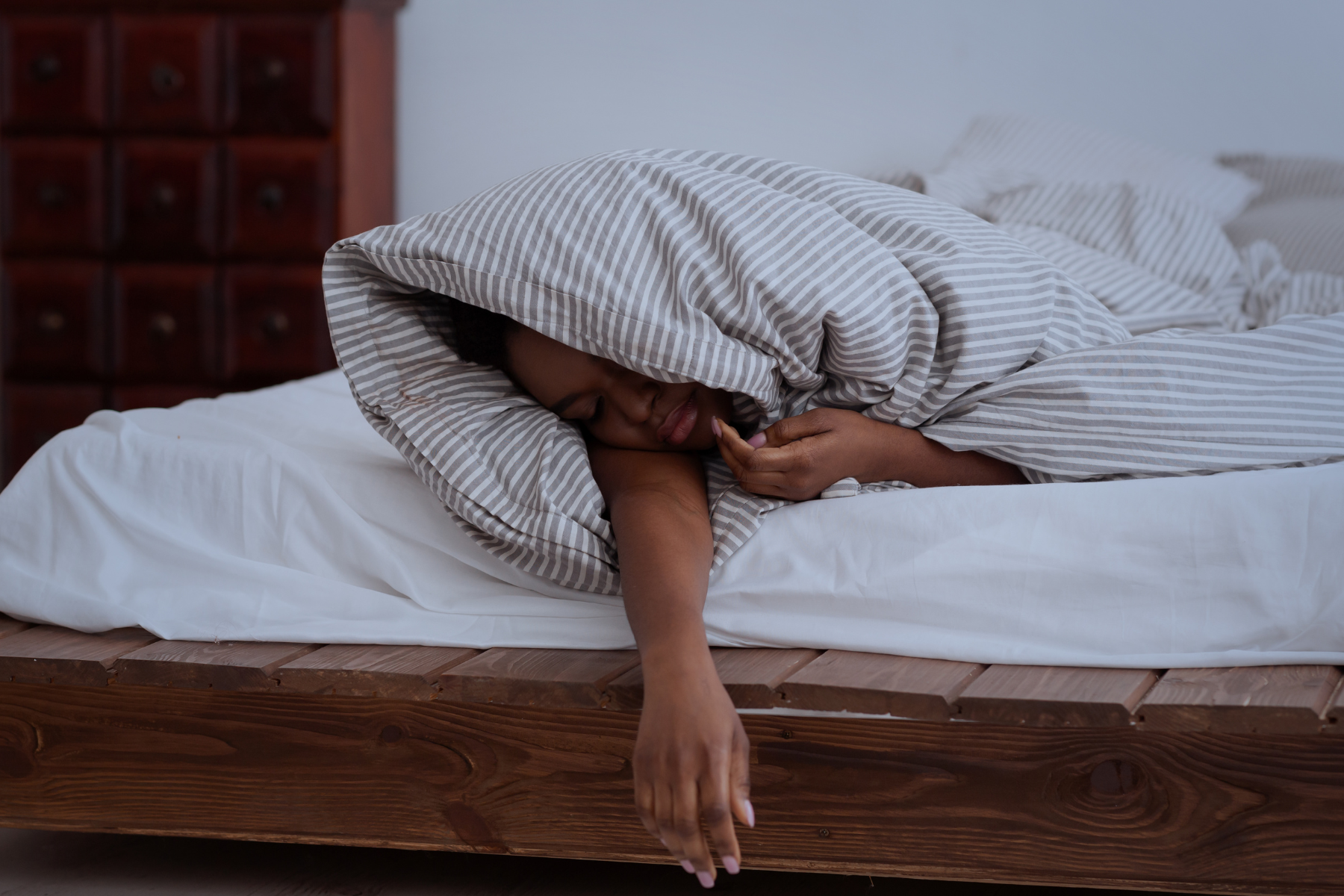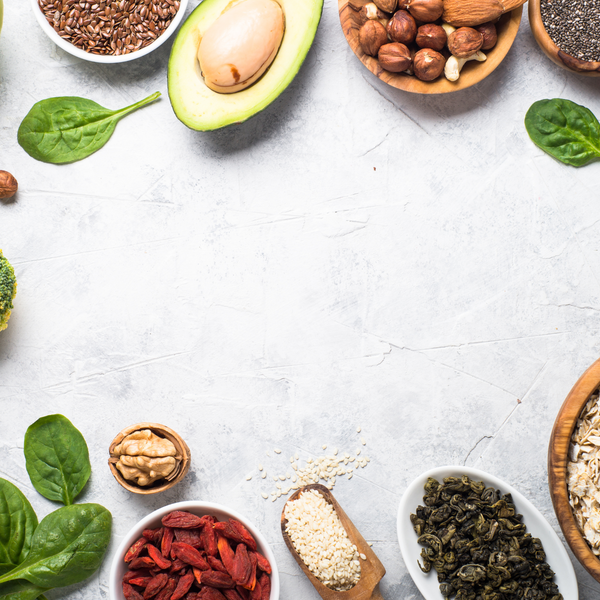
Trouble Sleeping During Menopause? Conquer Restless Nights With These 10 Foods
Menopause is a natural biological process that every woman experiences as she ages, marking the end of her reproductive years. While it is a normal part of life, the transition can come with a host of uncomfortable symptoms, not least of which is trouble sleeping. Hot flashes, night sweats, and hormonal changes contribute to sleep disturbances, making a good night's rest seem like a distant dream for many. The good news is that there are natural ways to combat menopausal insomnia, and it starts with what you put on your plate.
In this article, we delve into how adjusting your diet can help alleviate sleep problems associated with menopause. We'll explore five foods that have been shown to improve sleep quality, helping you conquer those restless nights. Whether you're currently navigating menopause or preparing for this phase of life, incorporating these foods into your diet may offer the relief you've been seeking.
Understanding Menopause and Its Impact on Sleep
Menopause is defined as the time that marks the end of menstrual cycles, diagnosed after 12 months of amenorrhea (the absence of menstruation). It typically occurs in women between the ages of 45 and 55 but can happen earlier or later. Menopause is accompanied by a decrease in the production of estrogen and progesterone, two hormones critical to the menstrual cycle and fertility. This hormonal shift triggers a range of symptoms, including hot flashes, mood swings, weight gain, and, importantly, sleep disturbances.
So, why is sleep particularly affected during menopause? The decline in estrogen levels can make you more susceptible to environmental and stress-related disruptions, while decreased progesterone can make it harder to fall asleep and stay asleep. Additionally, night sweats and hot flashes can interrupt sleep, further exacerbating the problem.
How Long Does Menopause Insomnia Last?
Menopause-related insomnia varies among women; for some, it lasts only during the perimenopause phase, while others might experience it into post menopause. Factors like lifestyle, stress, and health conditions also influence its duration.
How Diet Affects Menopausal Insomnia:
Can Food Really Help Me Sleep?
It's a question many women ask as they navigate the challenges of menopause: Can the right diet actually improve my sleep? Surprisingly, the answer is yes. Certain foods possess properties that can influence our sleep quality, especially during the hormonal fluctuations of menopause. From nutrients that relax the body to compounds that regulate sleep-inducing hormones, the impact of diet on sleep is both significant and scientifically supported. In the following section, we explore five specific foods known for their sleep-enhancing benefits, illustrating how incorporating them into your diet might just be the key to unlocking better sleep during menopause.

10 Foods That May Improve Your Sleep During Menopause
Fatty Fish
Fatty fish like salmon, mackerel, and sardines are not only delicious; they're also packed with nutrients that can enhance sleep quality, especially during menopause. These fish are rich sources of omega-3 fatty acids and vitamin D, both of which have been linked to improvements in sleep quality. Omega-3s, particularly EPA and DHA, help regulate serotonin levels, a neurotransmitter associated with sleep. Vitamin D, on the other hand, can improve sleep duration and quality. A study published in the Journal of Clinical Sleep Medicine found that higher intakes of fatty fish resulted in better sleep and daily functioning.
How to Incorporate Fatty Fish into Your Diet
Aim to include fatty fish in your meals 2-3 times per week. Whether it's grilled salmon, mackerel salad, or sardine spread on toast, these options can enrich your diet and may improve your sleep during menopause.
Almonds
Almonds are another sleep-supporting superfood, thanks to their high magnesium content. Magnesium is a mineral that plays a crucial role in supporting deep, restorative sleep by maintaining healthy levels of GABA, a neurotransmitter that promotes relaxation and sleep. Menopause can disturb sleep patterns, and a magnesium-rich diet can help counteract this. A serving of almonds (about 1 ounce or 23 nuts) provides 19% of your daily magnesium needs. Enjoy them as a snack, sprinkle sliced almonds over salads, or blend them into smoothies.
Cherries
Cherries, particularly tart cherries, are one of the few natural food sources of melatonin, the hormone that regulates the sleep-wake cycle. Consuming cherries or cherry juice can increase melatonin levels in the body, improving sleep quality and duration. One 2010 study found that consuming tart cherry juice significantly increased sleep time and efficiency in adults with insomnia.
Fresh vs. Juice Forms
While fresh cherries are a seasonal delight, tart cherry juice is an excellent year-round alternative. Consider having a glass of tart cherry juice in the evening or incorporating fresh cherries into your diet when they're in season to reap the sleep benefits.
Flaxseeds
Flaxseeds are rich in lignans, phytoestrogens that can have estrogenic and antiestrogenic effects, potentially helping to balance hormones during menopause. Additionally, flaxseeds are a good source of omega-3 fatty acids, which can aid in sleep. Their lignan content may help mitigate hot flashes, improving sleep indirectly.
Ground flaxseeds can be easily added to your diet. Sprinkle them over yogurt, blend them into smoothies, bake them into cookies or mix them into oatmeal. Just one tablespoon a day can contribute to your nutritional needs and possibly improve sleep quality.
Yogurt
Calcium plays a vital role in the body's production of melatonin and can help reduce the difficulty in falling asleep. Yogurt is an excellent source of calcium, and its intake has been associated with better sleep quality. Menopause can lead to a decrease in calcium levels, making it even more important to include calcium-rich foods like yogurt in your diet.
Beyond improving sleep, yogurt's high calcium content is essential for bone health, particularly important during menopause due to the increased risk of osteoporosis. Incorporate it into your diet as a snack, part of breakfast, or as a base for smoothies.
Bananas
Bananas are not only a convenient snack but also a natural source of magnesium and potassium, two minerals that help relax muscles and
Bananas are not only a convenient snack but also a natural source of magnesium and potassium, two minerals that help relax muscles and nerves, promoting a restful night. Additionally, bananas contain tryptophan, an amino acid that the body converts to serotonin and melatonin, the brain’s key calming hormones.
Walnuts
Walnuts are a good source of tryptophan, an essential amino acid that aids in the production of serotonin and melatonin, which help regulate sleep. They also contain a small amount of melatonin themselves, potentially boosting blood melatonin levels and making it easier to fall asleep.
Oatmeal
Though often thought of as a breakfast food, oatmeal can be a comforting pre-bedtime snack. It’s a source of complex carbohydrates that can help more tryptophan get into the brain. Oatmeal also contains nutrients like magnesium, phosphorus, manganese, and silicon, which may support sleep.
Kiwi
Kiwi is rich in antioxidants, including vitamin C and carotenoids, and has been shown in studies to improve sleep onset, duration, and efficiency in adults. This effect may be due to its high concentration of serotonin, which helps regulate the sleep cycle.
Turkey
Turkey is famous for its high tryptophan content, which is why you might feel sleepy after a big Thanksgiving dinner. Including turkey in your diet can help increase the production of melatonin, aiding in better sleep quality.

More Ways to Improve Sleep During Menopause
Aside from dietary changes, several non-food-related strategies can significantly improve sleep quality during menopause. Incorporating these practices into your nightly routine can help ease menopause-related insomnia:
-
Maintain a Regular Sleep Schedule: Going to bed and waking up at the same time every day helps regulate your body's internal clock, improving sleep quality.
-
Create a Restful Environment: Ensure your bedroom is cool, dark, and quiet. Consider using earplugs, eye shades, or white noise machines to create a more sleep-conducive environment.
-
Limit Screen Time: Exposure to blue light from screens can disrupt your body's natural sleep-wake cycle. Try to avoid screens at least an hour before bedtime.
-
Exercise Regularly: Regular physical activity can help you fall asleep faster and enjoy deeper sleep. However, try to avoid vigorous exercise close to bedtime as it can energize you and make falling asleep more difficult.
-
Practice Relaxation Techniques: Activities such as yoga, meditation, or deep breathing exercises can reduce stress and promote better sleep.
-
Consider Cognitive Behavioral Therapy (CBT): CBT for insomnia is a structured program that helps you identify and replace thoughts and behaviors that cause or worsen sleep problems with habits that promote sound sleep.
-
Consult with a Healthcare Provider: If menopause-related sleep disturbances are severe or persistent, it may be beneficial to consult a healthcare provider.
Conclusion
Navigating the complexities of menopause, particularly the challenge of achieving restful sleep, can feel daunting. Yet, through strategic dietary choices and the integration of effective lifestyle adjustments, managing and even overcoming these obstacles becomes entirely possible. The inclusion of the above mentioned foods in your diet brings a natural approach to fostering better sleep. These foods, rich in nutrients essential for hormonal balance and sleep regulation, can make a significant difference in how you experience menopause.
Equally important are the non-food-related strategies that address sleep hygiene and overall well-being. Establishing a consistent sleep routine, creating an environment conducive to rest, engaging in regular physical activity, and exploring relaxation techniques all contribute to a holistic strategy for improving sleep.
Menopause is a natural phase of life, marked by its unique challenges, but it also brings an opportunity to rediscover and take care of yourself in new ways. By focusing on both what you eat and how you live, you can significantly impact your sleep quality and overall health during menopause. Remember, small changes can lead to big improvements. Embrace this time to experiment with these foods and strategies to find what works best for you, paving the way for restful nights and vibrant days.
Additional Resources:
Stay updated!
Sign up to get email updates
Related Posts

Foods That Help Reduce Perimenopause Cramps and What To Avoid

Conquering Extreme Fatigue In Perimenopause: Your Ultimate Guide

 Skip to content
Skip to content



